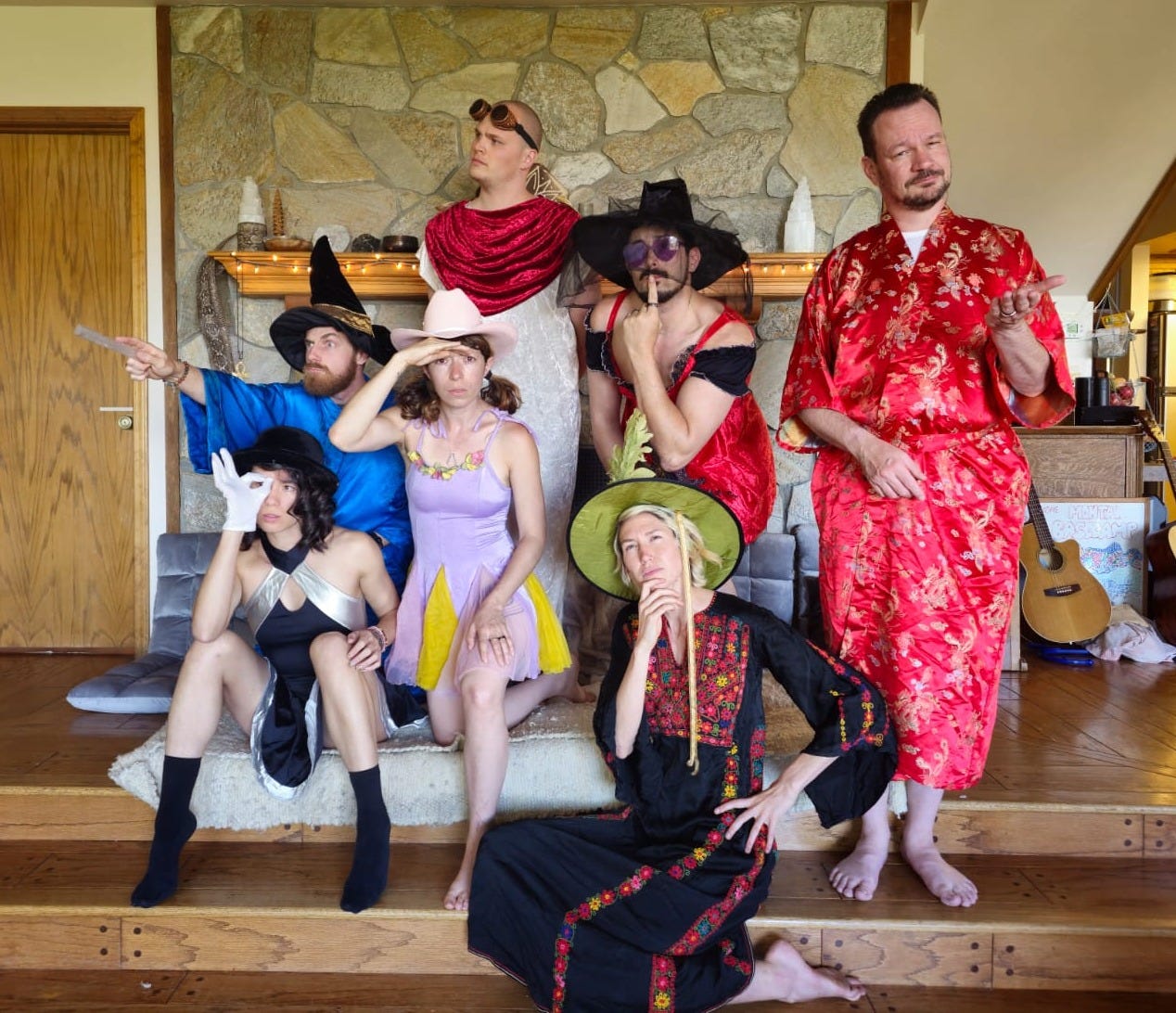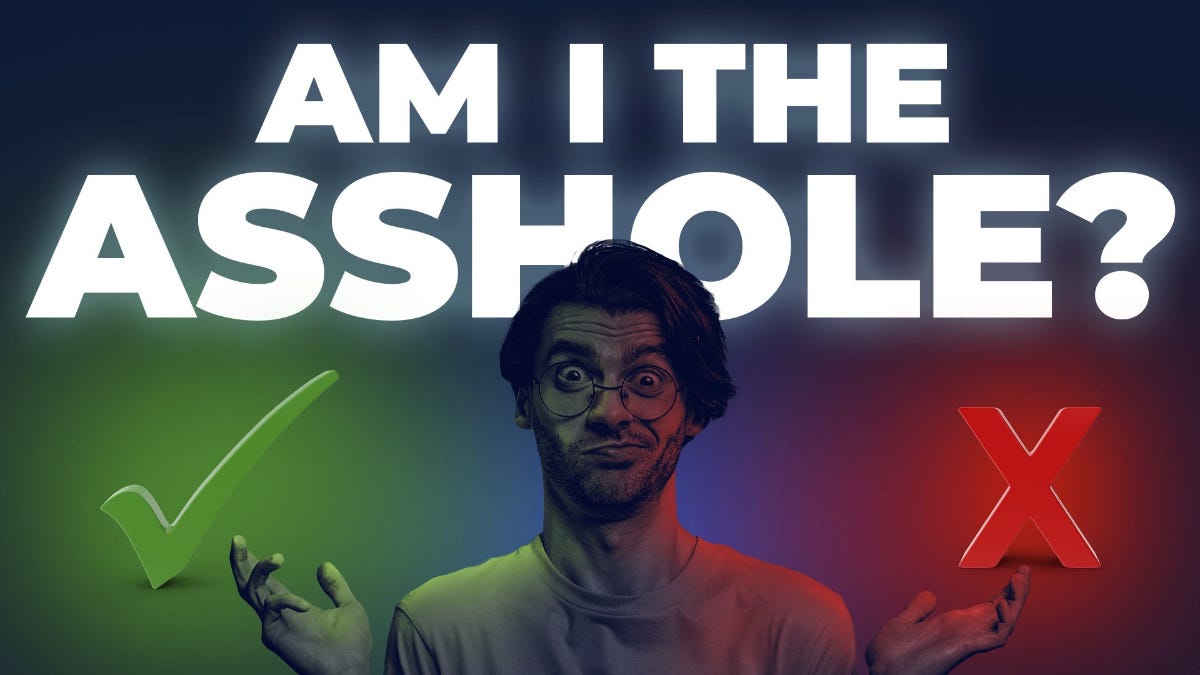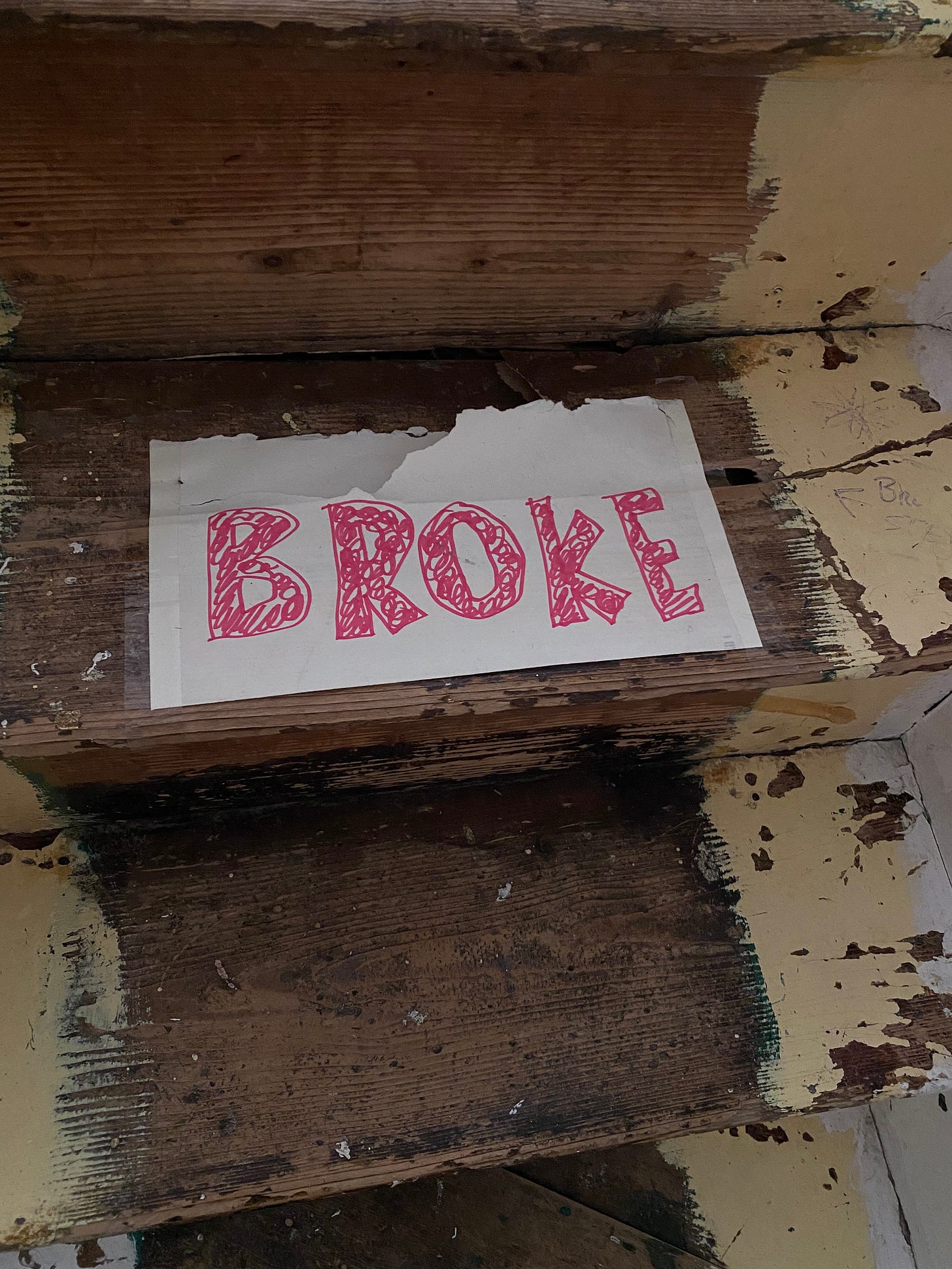This article is not research-based. It’s a hot take on what it takes to make good community. I find myself sorting for these criteria as I look for new members to join our prospective co-living land in Asheville. Thus, I present it to you, and ask the age-old question: Am I the asshole?
That question is relevant, because my hot take is: To create a good community, choose the right personalities.
That doesn’t sound like a hot take, until you consider what it might exclude:
The community applicant who is great on all your objective criteria, but they’re a little bit cranky
The friend who has supported you in your own life and is now asking for a spot to stay, and you can’t even put your finger on why she doesn’t seem like a good fit for the group
The well-meaning but controlling investor whose financial input could solve all the community’s money woes
The friend who would be incredible to live with, but comes with parents who don’t want to be part of community and “will just keep to themselves”.
Choosing the right personality means being semi-agnostic to all the criteria usually used for decisions about inclusion - age, race, income level, capacity, family connections, reciprocity - and focusing on one thing alone: Does this person seem like they’d be easy to live with?
Of course, one person isn’t going to poison a whole group. You could let your friend in; others would balance her out, right? And the parents probably would keep to themselves, even if they sometimes had opinions on things about the property. And you need the investor. One person couldn’t hurt.
There’s an old parable I love that relates to people in community. Here’s how it goes:
You’re having a drink in a bar. At some point, you feel a need to go to the bathroom. You ask the bartender and he says, “It’s out back, up the flight of stairs to the left.”
You go out back and climb the flight of stairs. Halfway up, your foot goes right through one of the steps! You twist your ankle and have to limp back down.
When you get back into the bar, you confront the bartender. “Why didn’t you tell me one of the stairs was broken??”
He looks at you in confusion. “Oh. Everyone knows to skip that one.”
The moral of this story: Some people are like broken stairs.
They’re a little hard to deal with. They’re chronically cranky, judgmental, snarky, or snappy. Maybe they’re prone to getting drunk and belligerent, or they don’t respect others’ space, or they talk your ear off without attunement. They’re great people for some groups - but they don’t really fit with yours.
People who know them know this. Occasionally you’ll get a heads up about it before an interaction - “Oh, watch out for X, she’s a little handsy when she’s drunk” - but it’s not very socially acceptable to talk to other people about their personality flaws. Or to confront them about it. Which is why, IMO, we have so many antisocial personality flaws. Please god can we just learn to give and receive better feedback >.<
Anyways, others will interact with this person when they’re in a mood, and come away with a tweaked nose or a twisted ankle.
Subtly - ever-so-subtly - the fabric of community will be eroded.
Subtly, the community will turn against this person. Avoiding them, maneuvering around them, discussing them vaguely as a problem.
Subtly, this person will feel it, and they’ll put their own guard up.
Then a not-so-subtle day will come when a conflict about something simple will blow up.
The smoke of mistrust will become a fire, where the root is relational but the topic seems simple enough for people to take sides.
It doesn’t always happen.
But one mis-fitting person can tear a community apart.
The above article talks about how this happened in my last community.
Most communities deal with this problem through processes.
Communities, as a largely liberal institution, want to be inclusive. So, just like companies, they create processes to decrease the impact of individual behavior on group health.
A good community has processes for:
Decision-making
Conflict
Inclusion
Exclusion
Meetings
Finances
Values and norms
Roles and responsibilities
…also sometimes pets, communication, sexuality, sound…you name it, there is a community somewhere that has run into a problem about it that they needed to codify.
Here’s the thing, though. The more open the community is, the more processes it needs to have. Open communities tend to be bigger - there are more voices in the room. And, because they don’t screen for similarities between their members, there are more cultures and expectations at play.
As a general rule, the more inclusive you get, the less cohesive you get. Thus the more time you need to spend in meetings - and conflict resolution.
I know, because I ran an open, practice-based community for many years. My second “job” in my early twenties was moderating discussions between people who didn’t get along, and trying to wrangle groups to make decisions that were often overturned by the next meeting.
Processes are absolutely necessary. But perhaps…perhaps inclusion of everybody who wants in, or is so close to almost a fit, means you need a lot more processes to get to connectedness.
My Selection Criteria for Good Community Members
I am now in my thirties, looking for members to join a newly forming living community in Asheville. I have been pre-screening by looking at Facebook profiles, and then setting up phone calls. I am being an asshole about my selections - because at this point in my life, I would rather have a good community than an inclusive one.
These criteria weren’t defined in advance, so it’s been a great learning experience to notice what I’m looking for. Here’s what I seem to be sorting for:
1. CHILL.
This could probably be the only criteria, and it would create a good community. Of course, I would personally be screened out, so there’s that. 😂
Chill means:
Non-dogmatic. Your Facebook profile doesn’t have an unbroken feed of political or social views. You aren’t trying to convert anyone, even if you hold your own opinions strongly.
Willing to compromise. If you want community to look a certain way and I say “ours doesn’t look exactly like that”, you either opt out or flex your less important criteria. You don’t ask if our community can change to meet what you want, or come in saying “that’s fine” and argue later.
Smooth, not spiky. We can all be cranky, but good community members are either relatively chill or know how to deal with their reactivity. If you take offense at something I say and you don’t calm down within about 10 seconds, unless I’ve hit on a really deep-seated trigger that you tell me about, you’re probably not a fit. (The “calm down” is important here - I’ve lived with many fiery people who were good at self-regulating!)
Sense of self-humor. If you can’t laugh at yourself, it’s not always a sign of “no chill”…but it’s a hint.

2. Thoughtful
You consider others’ views. If I present an opinion you don’t agree with, you stop for a moment and go, “hmmm…” You don’t have to say, “Why yes, your view is correct!” - that can hint at you not knowing your own boundaries, which is its own red flag because they’ll come out sideways later. Instead, I’m looking for that beautiful moment of “I’m going to pause so that my brain can take in new information”.
You’ve considered your answers in advance. I’ve been in a couple conversations with potential members where I asked, “What are you looking for from community?” or “What is community to you?” and the response back was a vague form of “You know…togetherness. I feel like I belong.” Belonging is a byproduct of community, not a contributing factor. If you’re sorting for a feeling, you haven’t thought your answer through.
Keep reading with a 7-day free trial
Subscribe to Sara’s Substack to keep reading this post and get 7 days of free access to the full post archives.






